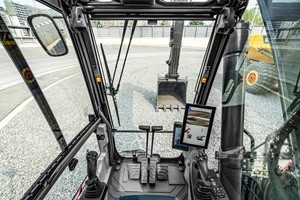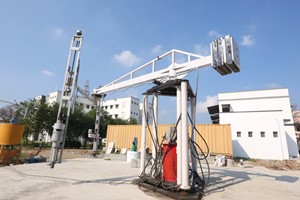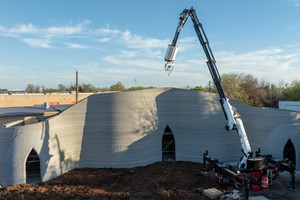BYD and XCMG, China’s largest construction machinery producer, have jointly introduced three innovative battery models designed to advance the electrification of construction machinery. The announcement, made on November 26, clarifies the specifics of the new offerings: the super hybrid battery, the super-fast charging battery, and the super integration battery. These cutting-edge technologies aim to address key performance challenges in the industry.
Super Hybrid Battery
The super hybrid battery features a 4C charging rate, an energy density of 120 Wh/kg, and a single-pack capacity of 17.3 kWh. It boasts the ability to charge from 20% to 80% state of charge (SoC) in just 10 minutes, enhancing operational efficiency for construction applications.
Super-Fast Charging Battery
The super-fast charging battery offers a charge and discharge current of 400A, an energy density of 160 Wh/kg, and a single-pack capacity of 37.7 kWh. With a maximum voltage of 1500V and a lifecycle of 7,000 charges, it is designed for durability and high performance. While the global 2C charging rate may not match the expectations of “super-fast charging,” BYD claims the battery can deliver 1.5 hours of usage after a 10-minute charge.
Super Integration Battery
The super integration battery represents a milestone as the first mass-produced CTB (Cell-to-Body) battery for construction machinery. It delivers a charge and discharge current of 400A, a volume energy density of 320 Wh/l, and a single-pack capacity of 97.7 kWh. Engineered for resilience, it can withstand vibrations at six times the intensity of the previous national standard, a critical feature for commercial vehicles and heavy machinery.
Shared Features and Industry Impact
All three battery models are variants of BYD’s renowned Blade Battery, a lithium iron phosphate (LFP) battery. They are designed to perform under extreme conditions, withstanding temperatures from -40°C to 65°C and operating at altitudes of up to 5,500 meters.
Currently, only 3% of construction machinery operates on electric power. Considering that the emissions from a single diesel-powered construction machine are equivalent to approximately 200 cars, the shift towards electrification promises substantial environmental benefits.
Mass production of these batteries is already underway, and deployment in construction machinery is expected to commence shortly.
This development underscores BYD and XCMG's commitment to driving innovation and sustainability in the construction sector, paving the way for a greener future.
By Mark Andrews














